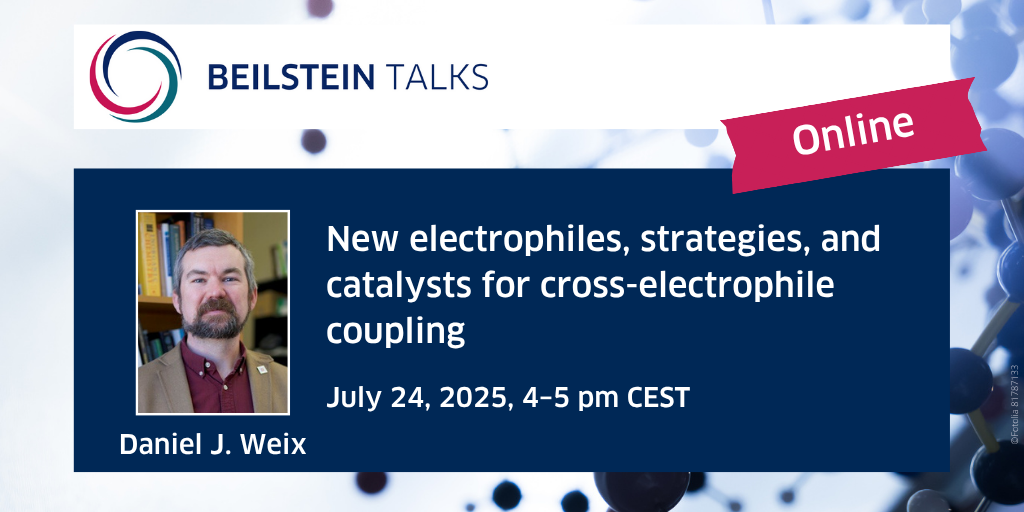Beilstein Talk "New electrophiles, strategies, and catalysts for cross-electrophile coupling"

Beilstein Talks
The Beilstein Talks are an established addition to the projects of the Beilstein-Institut supporting communication and information in science. These online talks are free to attend; a simple registration is all that is required.
New electrophiles, strategies, and catalysts for cross-electrophile coupling
Daniel J. Weix / University of Wisconsin-Madison, USA
July 24, 2025, 4–5 pm CEST
Online live talk
👉 Go to the free registration for the online live talk!
Introduction
The primary challenge for synthetic chemists is supporting the efficient exploration of chemical space to find the best molecules for understanding or solving problems. In the past decade, cross-electrophile coupling, the union of two different electrophiles through transition-metal catalysis under reducing conditions, has become an increasingly used tool in these efforts. By focusing method development on the largest pools of pre-functionalized molecules, the millions of available carbon electrophiles, chemical space can be more efficiently accessed than through reactions limited to the thousands of carbon nucleophiles. Development of these reactions requires the development of strategies to utilize the most abundant electrophile pools and to ensure the reactions favor the cross-coupled product over potential homodimeric products. Guided by mechanistic understanding, we have developed general strategies tailored to C(sp2)-C(sp2), C(sp2)-C(sp3), and C(sp3)-C(sp3) bond formation based upon differential modes of activation (two-electron vs single-electron), multimetallic catalysis, and utilizing the general idea of persistent vs transient intermediates. This talk will briefly introduce the mechanistic underpinnings of selectivity in cross-electrophile coupling reactions and then discuss recent developments in the design of better catalysts, new electrophiles, and new reactions. In particular, this talk will explore the use of new types of electrophiles derived from sulfones, amines, carboxylic acids, and alcohols, and less reactive electrophiles, such as organic chlorides and sulfonate esters. New approaches to catalyst discovery and improvement utilizing ideas from drug discovery will also be discussed. Finally, applications to industrial challenges both large and small will be presented.
11 Jun 2025






